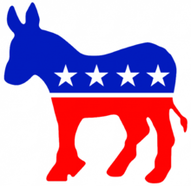 Henry McKeand Editor-in-Chief and A&E Editor The first presidential Democratic debate took place Oct. 13, giving voters the first chance to see Democratic frontrunner Hilary Clinton face off with Bernie Sanders, the Vermont senator who has been rising in the polls recently. Joining Clinton and Sanders was former governor of Maryland Martin O’Malley, former US senator Jim Webb, and former governor of Rhode Island Lincoln Chafee. Almost all of the current hot button issues were addressed, from domestic issues like gun control and racial justice to foreign affairs such as the conflict in Syria. The loud and passionate style of Sanders differed from Clinton’s cooler, more political demeanor. Clinton’s more moderate beliefs were contrasted with those of Sanders, a self-described socialist who is calling for a political revolution. While Clinton and Sanders exchanged heated words over many of the issues, however, they more-or-less agreed on the key points. In fact, all five candidates managed to play relatively nice. Aside from a few attacks on Hilary Clinton’s e-mail scandal and supposed lack of consistency, few personal jabs were thrown. The majority of the debate found Clinton taking more middle-of-the-road stances on issues while Sanders made emotional statements, and these approaches had their advantages and disadvantages for both candidates. On some topics, such as racial inequality and worker’s rights, Sanders’s energetic delivery and strong opinions made him seem like the more exciting candidate. When the Black Lives Matter movement was brought up, Sanders took a firm stance and said with no hesitation that “Black lives matter.” His response went over well in the audience as did his continued attacks on Wall Street and the one percent.
However, Clinton shined when discussing national security and gun control, one of the only issues where Clinton is further to the left than Sanders. She made a point of attacking him on his underdeveloped gun control policies, and when asked if Sanders’s stance on guns was strong enough, Clinton answered by saying, “No, not at all.” She also came off as more confident and prepared when talking about conflicts with Russia and the tension in the Middle East. She came off as presidential and steady despite being forced to defend herself against criticisms on her changing positions on both the Iraq war and gay marriage. The other three candidates struggled to soak up any of the spotlight. O’Malley was the strongest of the three, going head-to-head with Sanders on gun control and asserting himself throughout the night. Still, with only one percent in most polls, his place in this close race in still unclear. On the other hand, Webb and Chafee had much worse nights. Webb struggled to be heard and spent too much of his already small talking time pointing out that he was not being asked enough questions. Chafee came off to most viewers as weak, and he truly stumbled when he explained his vote to repeal the Glass-Steagall act by saying that he had, “…just arrived in the senate,” and did not truly understand what he was voting on. There is a long way to go until the election, but it looks as if the nomination will come down to either Clinton or Sanders. The consensus in most major news outlets seems to be that Clinton had the strongest performance, but Sanders won on social media. However, this was only the first of a proposed six Democratic debates, and it will be interesting to see how the dynamic between these five candidates changes. Comments are closed.
|
Archives
March 2017
Categories
All
|

